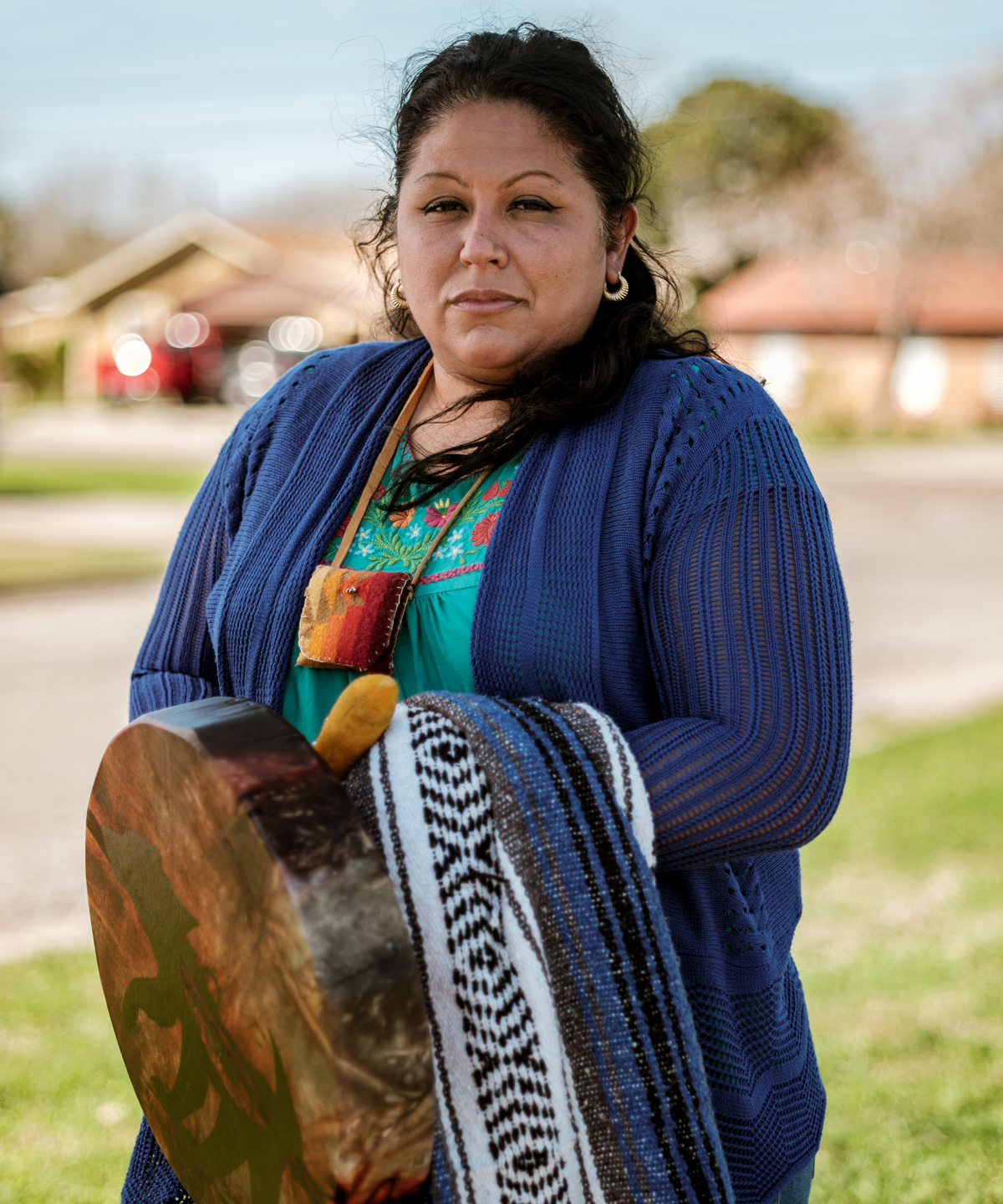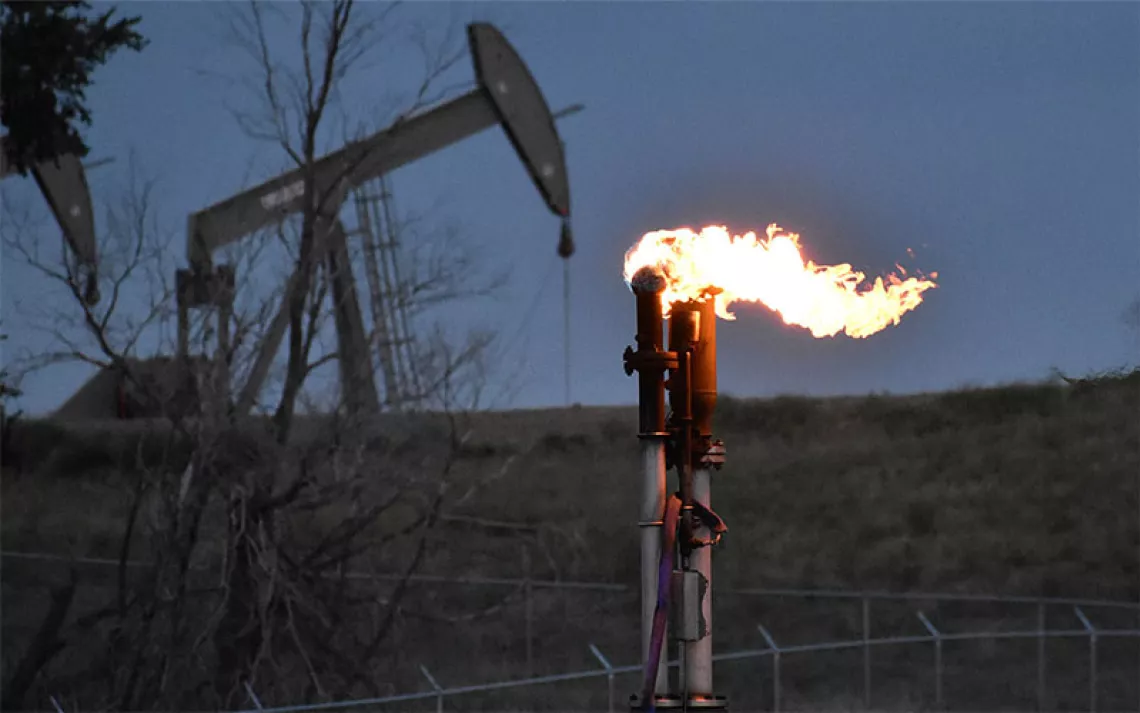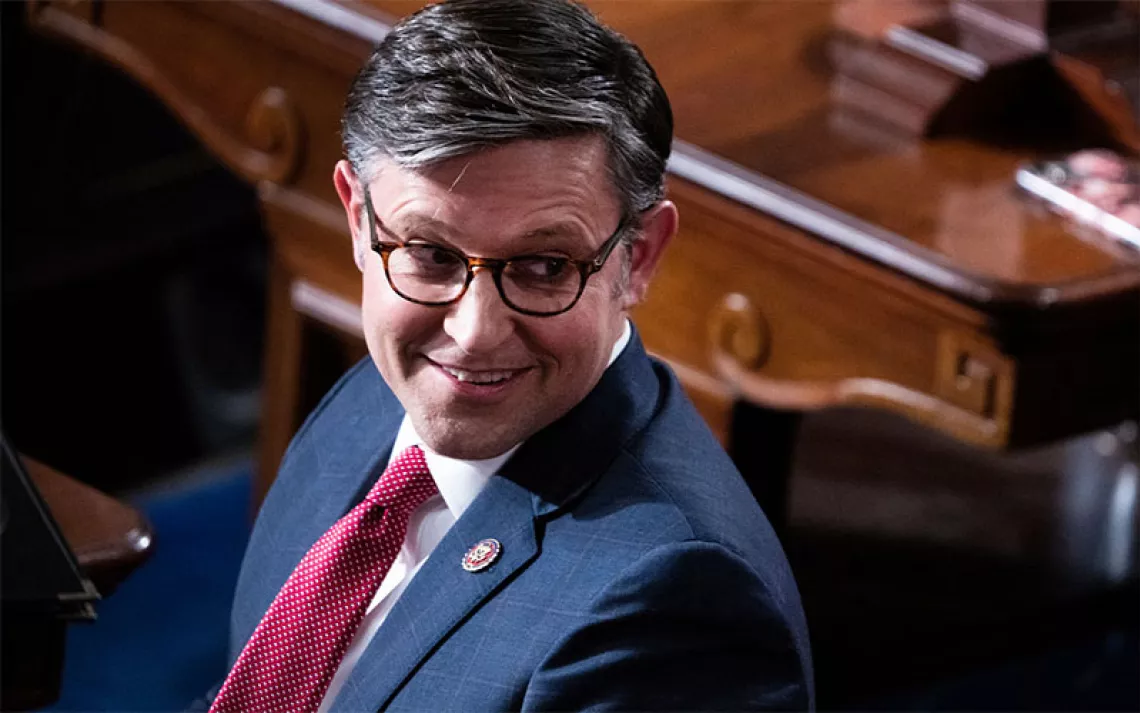In Texas, Indigenous Land Protectors Face Off Against the Fossil Fuel Industry
Members of the Karankawa Kadla are suing to stop an Enbridge oil export terminal
 Love Sanchez | Photo by Rahim Fortune
Love Sanchez | Photo by Rahim Fortune
When Love Sanchez takes her two sons and her nieces and nephews to play on Corpus Christi's waterfront, she likes to imagine how the stretch of Texas coastline looked when her Indigenous ancestors lived there—before the Spanish arrived in the 1500s, before the city's incorporation in 1852, before the 1858 massacre that nearly wiped out the Karankawa. She can't get over the beauty of the palm-lined ocean views and the richness of the estuary where the Nueces River meets the salt water, which have earned Corpus Christi the nickname "Sparkling City by the Sea." Nor can she stop seething over the towers, tanks, and fence lines of heavy industry that now dominate the area. "They make me sick," Sanchez says of the crude-carrying barges she sees passing by the park.
The lands and waters around Corpus Christi are home to a rogues' gallery of fossil fuel companies. The area has been a hub for oil and gas operations since the 1930s, but in recent years there has been a surge in new construction—fueled in part by the glut of oil and methane gas from the fracking boom. In 2017, Koch Industries expanded its crude export facility in the nearby town of Ingleside, the same year that Occidental Petroleum Corporation completed a $1.5 billion plastics plant there. In 2018, Cheniere Energy converted a former naval base into a 1,000-acre facility for the export of liquefied natural gas. And last July, Cheniere asked the Biden administration to exempt it from limits on cancer-causing emissions to make it easier to export gas to Europe.
Sanchez first got involved in grassroots efforts to halt the fossil fuel expansion about a decade ago, when she heard about a campaign to stop the construction of a power plant that would have been fired by petroleum coke, or petcoke, a byproduct of oil refining. That campaign was successful, and the facility was never built. But resisting the powerful Texas oil and gas industry is often a game of Whac-A-Mole. Now, Sanchez is in the midst of a new fight: to prevent the construction of an oil terminal that, if completed, would be the largest crude oil export site in the United States by volume. "The Earth gives to us, so we're supposed to give back by protecting it," Sanchez says.
In August 2021, Sanchez and the intertribal community group Indigenous Peoples of the Coastal Bend, along with Texas environmental organizations, sued the Army Corps of Engineers for improperly green-lighting a construction permit, now held by the energy giant Enbridge. The groups say the proposed terminal would violate several federal environmental laws. Additionally, they claim that the 70 acres Enbridge wants to build on should be protected as a national historic site because archaeologists have found nearly 40,000 Karankawa artifacts there. But there's a hitch: The Karankawa aren't a federally recognized Native American nation. In a response to public comments about the construction permit, the Army Corps of Engineers said that the Karankawa and the Indigenous Peoples of the Coastal Bend "have no special consultation rights and are considered members of the public."
"I would just love for people to really put themselves in the Indigenous person's shoes," says Chiara Beaumont, an Austin resident who is involved in the effort to stop the oil export terminal. "This is our home, and we've always been here."
Beaumont and Sanchez identify as Karankawa Kadla—kadla meaning "culturally mixed." The dominant narrative has long been that the Karankawa came to an end in the 1860s. The Karankawa Kadla tell a different story. They say that their ancestors went into hiding and blended in among the region's Mexican communities to avoid persecution. For generations, Karankawa oral histories and cultural traditions were handed down in secret.
Sanchez grew up hearing stories about her Indigenous heritage and visiting Mustang Island, a barrier island with long strips of undeveloped beach, where she'd dream about how the land once looked. As she got involved in environmental activism, she built relationships with other Indigenous locals who spurred her to investigate her family history. Talking with her grandmother and other relatives, she learned more about her family's origins.
In the past dozen years, Sanchez, Beaumont, and other Karankawa Kadla have begun to reunite—mostly thanks to connections made on social media. "This isn't just an environmental issue for us—our culture, our history, our future are at stake," Beaumont says. "The Earth has given to us, so every opportunity we can get to fight for her is also directly tied to the preservation of our culture. It just so happens that where they are proposing this [oil terminal] expansion is on top of a very sacred site."
In addition to the lawsuit filed last year, the Karankawa Kadla have organized or participated in protests in Austin, Houston, and San Antonio to demonstrate their opposition to the Enbridge oil export terminal. Elida Castillo, the program director of Chispa Texas, a Latino-led program of the League of Conservation Voters, says the Karankawa Kadla have played a crucial role in opposing the fossil fuel industry's expansion: "They are amazing at mobilizing their group and moving their supporters to direct actions."
The Karankawa Kadla and allies like Castillo know that even if they succeed in their lawsuit against the oil export terminal, there will be other battles against the fossil fuel industry. Sanchez takes a measure of hope and strength from the knowledge that their fight is just one part of the larger movement for Indigenous sovereignty, like the Standing Rock Sioux's campaign against the Dakota Access Pipeline and the White Earth Band of Ojibwe's struggle against the Line 3 Pipeline in Minnesota.
"There's an Indigenous prophecy from another tribe that there is going to come a time when all the tribes are going to come together," Sanchez says. "It's amazing that we got to see that in our lifetime."
This article appeared in the Fall 2022 quarterly edition with the headline "Worthy of Recognition."
 The Magazine of The Sierra Club
The Magazine of The Sierra Club



